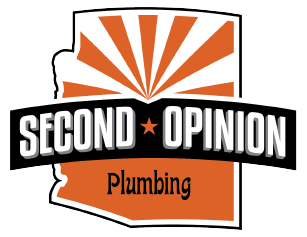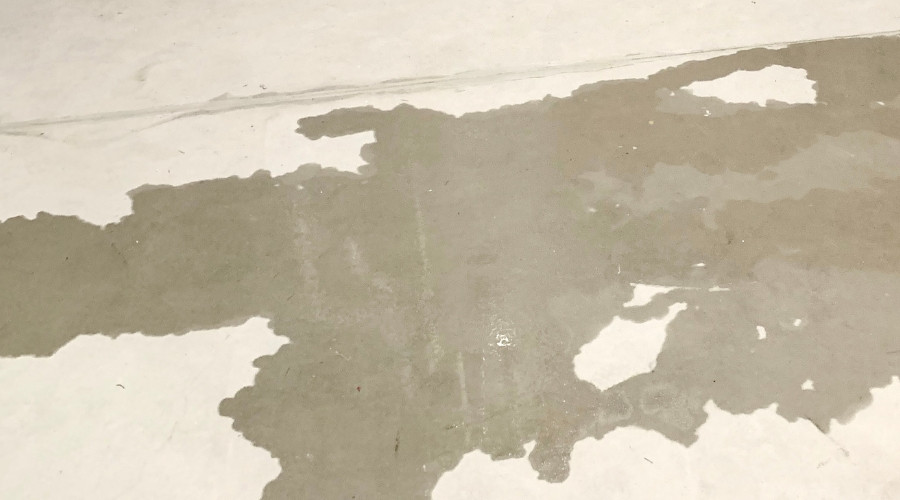Plumbers in Gilbert, AZ, discuss slab leaks and the common signs that indicate a slab leak.
Gilbert, United States - October 10, 2025 / Second Opinion Plumbing /
A Guide to Slab Leaks
Slab leaks can be a homeowner's worst nightmare, as they can cause significant damage before they are detected. They occur in the pipes beneath a home's concrete slab, making them particularly difficult to detect until the problem has escalated. Understanding what slab leaks are, recognizing their warning signs, and knowing their common causes can help people act quickly to mitigate potential structural damage and costly repairs.
What Are Slab Leaks?
A slab leak refers to a specific type of plumbing leak that occurs in the pipes located underneath a home's concrete foundation, often called a slab. These pipes, whether for water supply or wastewater drainage, are embedded within or beneath the concrete, making them particularly difficult to detect and access. Because the leak is hidden beneath the structure, homeowners may not realize they have a problem until significant damage has already occurred.
The consequences of a slab leak can be severe, as the constant escape of water can compromise the structural integrity of the home's foundation. Over time, the continuous moisture can lead to erosion of the soil beneath the slab, causing the foundation to shift or crack. Beyond the structural risks, water can also seep upwards through the concrete and into the home, resulting in extensive damage to flooring materials, as well as to baseboards and drywall in affected areas.
Signs of a Slab Leak
 Detecting a slab leak early can prevent more extensive and costly damage. Homeowners should be vigilant for several key indicators. Some common signs are the appearance of dark, damp spots on the top of the foundation or a persistent musty odor, particularly in areas near the foundation. These suggest that water is making its way up through the concrete.
Detecting a slab leak early can prevent more extensive and costly damage. Homeowners should be vigilant for several key indicators. Some common signs are the appearance of dark, damp spots on the top of the foundation or a persistent musty odor, particularly in areas near the foundation. These suggest that water is making its way up through the concrete.
Structural changes, such as cracks in the foundation, floors, or walls, can also indicate a slab leak, as the shifting soil beneath the slab can cause stress on the home's structure. Additionally, if certain spots on the floor feel unusually warm to the touch, or if flooring materials appear damp, faded, or discolored without an obvious external cause, a slab leak could be the culprit.
Beyond these specific signs, slab leaks can also cause general symptoms of a water leak. An unexplained and sudden increase in the water bill, despite no change in water usage, is a strong indicator of a hidden leak. Similarly, a noticeable drop in water pressure from faucets and fixtures throughout the home can signal that water is escaping somewhere in the system before it reaches the fixtures. If any of these signs are present, it is crucial to contact a professional for slab leak detection and, if necessary, prompt slab leak repair to mitigate further damage.
Common Causes of a Slab Leak
 Slab leaks can arise from a variety of factors, many of which are related to the environment surrounding the pipes and the age of the piping itself. One of the primary culprits is pipe corrosion. Over time, the materials used in plumbing pipes, particularly copper and galvanized steel, can degrade due to age and chemical reactions with minerals in the water, soil acidity, or even stray electrical currents. This corrosion weakens the pipe walls, making them susceptible to leaks or ruptures. The older the home and its plumbing system, the higher the risk of encountering corrosion-related slab leaks.
Slab leaks can arise from a variety of factors, many of which are related to the environment surrounding the pipes and the age of the piping itself. One of the primary culprits is pipe corrosion. Over time, the materials used in plumbing pipes, particularly copper and galvanized steel, can degrade due to age and chemical reactions with minerals in the water, soil acidity, or even stray electrical currents. This corrosion weakens the pipe walls, making them susceptible to leaks or ruptures. The older the home and its plumbing system, the higher the risk of encountering corrosion-related slab leaks.
Beyond material degradation, external pressures and geological shifts can significantly contribute to slab leaks. Shifting soil, a common occurrence due to natural settling, seismic activity, or changes in moisture content, can place immense stress on the embedded pipes. When the ground beneath the foundation moves, it can cause pipes to bend, crack, or even separate at their joints. Similarly, excessive water pressure within the plumbing system, whether due to a faulty pressure regulator or unusually high municipal water pressure, can strain pipes beyond their capacity, leading to bursts or leaks. Construction defects during the home's original build, such as pipes being laid directly on rocks or sharp objects, can also create stress points that eventually fail, leading to slab leaks.
About Second Opinion Plumbing
Second Opinion Plumbing is a family-owned and operated plumbing company serving Gilbert and the surrounding areas. They offer free estimates, straightforward pricing, and financing. Call them for slab leak repair in Gilbert, AZ.

Contact Information:
Second Opinion Plumbing
410 E Scott Ave
Gilbert, AZ 85234
United States
Brian Brooks
(480) 365-9555
https://secondopinionplumbingaz.com/


